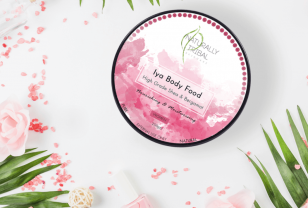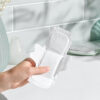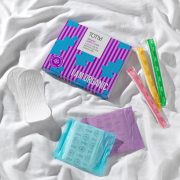In this blog we are talking to Accredited RSHE Educator, Demi, all about inclusive language when it comes to discussing periods.
Language around menstruation is often tailored towards a specific experience and/or person – the experience of ciswomen and girls. However, in the last year, we have seen a huge surge in conversations demanding the inclusion of trans, nonbinary, and GNC (gender non-conforming) people in period discussions. Here, Demi, shares insights on the discussion of how the language around periods could be more inclusive:
“Not every woman menstruates and not everyone who menstruates is a woman.”
Before diving into how to alter your language to be inclusive, let’s set one thing straight – not every woman menstruates, and not everyone who menstruates is a woman. Not only do nonbinary individuals and transmen menstruate, but some ciswomen may not menstruate due to various medical reasons including stress, eating disorders, menopause, a hysterectomy, genetic conditions, or hormone imbalances – menstruation is not what defines being a woman or not as transmen, nonbinary and GNC individuals may have periods too.
By considering and expanding the language we use when talking about periods, we can validate everyone’s experience.
“Avoiding using ‘female period’ or ‘a woman’s issue.'”
It’s important to avoid using phrases like, ‘female period’ or ‘a woman’s issue’ – menstruation isn’t a ‘woman’s issue’ because firstly, not everyone who has a period identifies as a woman, and secondly, having a period isn’t what defines womanhood. What’s important in the discussion of inclusive period conversation is understanding the difference between sex and gender. Sex, which is assigned at birth based on external genitalia and hormones is different from gender, which is how someone internally feels and identifies.
“Products have no gender.”
The products used during menstruation have no gender and anyone of any gender identity can use them. Move away from using phrases such as, ‘woman’s period product’ or ‘female hygiene products’, firstly these phrases suggest that only women can use period products and secondly, ‘hygiene’ suggests that periods are dirty. Pads, tampons, period-underwear, moon cups are all gender free and we need to discuss them as such, both on a personal level and on a big business level. Purchasing from brands that seek to represent all gender identities is vital in dismantling the misconception that periods are a ‘woman’s issue’.
Changing our language is an easy and truly powerful way of validating everyone who bleeds. Challenge gendered language, provide an alternative and educate on the importance of inclusive period discussion and education.
For an inclusive Period guide, I highly recommend Tara Costello’s ‘Red Moon Gang: An inclusive guide to periods’.
Thanks to Demi for writing this piece addressing the important topic of periods and inclusivity. With so much to learn in this space, the conversation is crucial to ensure period education and eradicating stigma for all.
At TOTM we stand by the narrative to make conversations around periods inclusive to all. We’re learning as we go, and definitely don’t have the answers, so allowing others the space to share their experiences feels like the best way for us to better understand and respond. We think it’s important that we have these discussions so we can learn how to be a brand that everyone can feel a part of.






